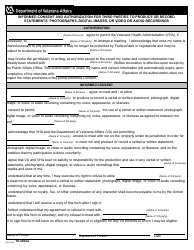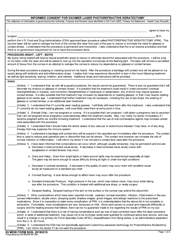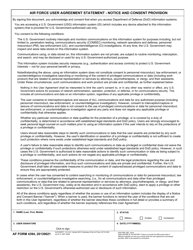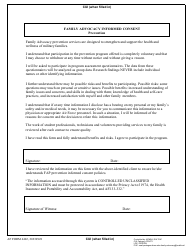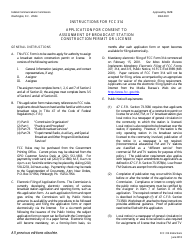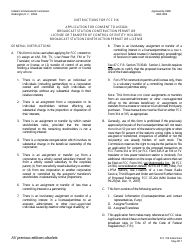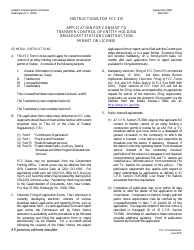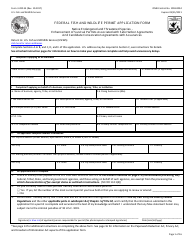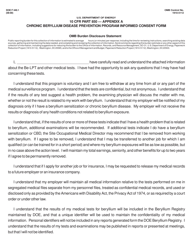Hormonal Contraception Informed Consent Form - New Mexico
Hormonal Contraception Informed Consent Form is a legal document that was released by the New Mexico Department of Health - a government authority operating within New Mexico.
FAQ
Q: What is a hormonal contraception?
A: Hormonal contraception refers to birth control methods that use hormones, such as pills, patches, injections, or implants, to prevent pregnancy.
Q: Is hormonal contraception effective?
A: Yes, hormonal contraception is highly effective in preventing pregnancy when used correctly and consistently.
Q: What are the different types of hormonal contraception?
A: The different types of hormonal contraception include birth control pills, the patch, the injection (Depo-Provera), the implant (Nexplanon), and the hormonal intrauterine device (IUD).
Q: How does hormonal contraception work?
A: Hormonal contraception works by preventing ovulation, thickening cervical mucus to prevent sperm from reaching the egg, and thinning the lining of the uterus to prevent implantation of a fertilized egg.
Q: What are the potential side effects of hormonal contraception?
A: Potential side effects of hormonal contraception may include nausea, breast tenderness, mood changes, breakthrough bleeding, and decreased libido.
Q: Is hormonal contraception safe?
A: Yes, hormonal contraception is generally considered safe for most women. However, certain medical conditions or medications may affect its safety or effectiveness.
Q: Do I need a prescription for hormonal contraception?
A: Yes, hormonal contraception requires a prescription from a healthcare provider.
Q: Are there any risks associated with hormonal contraception?
A: Hormonal contraception may have certain risks, such as an increased risk of blood clots, stroke, or heart attack. These risks are generally low but vary depending on the specific method and individual health factors.
Q: Can hormonal contraception protect against sexually transmitted infections (STIs)?
A: No, hormonal contraception does not protect against STIs. It only helps prevent pregnancy. It's important to use barrier methods, such as condoms, to reduce the risk of STIs.
Q: Can I use hormonal contraception while breastfeeding?
A: Yes, certain types of hormonal contraception, such as progestin-only pills or the hormonal IUD, are safe to use while breastfeeding. However, it's always best to consult with a healthcare provider for personalized advice.
Q: What should I do if I miss a pill or forget to get a new injection?
A: If you miss a pill or forget to get a new injection, follow the instructions provided by your healthcare provider or refer to the package insert for guidance. It may be necessary to use back-up contraception or take additional steps to ensure pregnancy prevention.
Form Details:
- The latest edition currently provided by the New Mexico Department of Health;
- Ready to use and print;
- Easy to customize;
- Compatible with most PDF-viewing applications;
- Fill out the form in our online filing application.
Download a printable version of the form by clicking the link below or browse more documents and templates provided by the New Mexico Department of Health.









